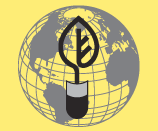|
Propagation of Ornamental Plants
8(2): 59-64, 2008
DIRECT AND INDIRECT IN VITRO ORGANOGENSIS OF LEUCOCORYNE PURPUREA (ALLIACEAE) A CHILEAN ORNAMENTAL GEOPHYTE
Luis H. Escobar1*, Miguel Jordan2, Eduardo Olate1,
Luis Barrales3, and Marlene Gebauer1
1Department of Plant Science, Pontificia Universidad Católica de Chile,
Santiago de Chile, Chile, *Fax: +56-2 552-0780, *E-mail: eolate@uc.cl
2Department of Ecology, Pontificia Universidad Católica de Chile, Santiago de Chile, Chile 3Biometry Unit, Pontificia Universidad Católica de Chile, Santiago de Chile, Chile
Abstract
In vitro shoot induction from callus and direct bulbil formation from shoots were obtained in Leucocoryne purpurea, an endemic vulnerable Chilean species. Basal leaf portions, bulb basal plate and root tips from in vitro grown plants were used as explants. Only bulb basal plate explants displayed morphogenic responses. Callus, shoot and bulbils developed on MS basal medium in the presence of various growth regulator combinations. Callus formation from bulb basal explants ranged between 40 to 100%; the highest response was observed in the presence of 4.5 or 13.6 μM 2,4-D alone or 4.5 μM 2,4-D in combination with 0.5 μM BA after 4 months. Picloram alone or in combination with 2iP or BAP also supported callus initiation. Indirect shoot formation from callus occurred only after a further culture period of 2 months in MS medium containing 0.5 or 2.3 μM TDZ. Basal bulb plate explants cultured in the presence of TDZ alone (0.5 and 2.3 μM, respectively) exhibited direct shoot formation within 90 days. After subculture in the presence of 0.5 μM TDZ each single shoot formed new shoots (3 to 4) and new bulbils. However higher TDZ levels, up to 2.3 μM, produced shoots with roots only, inhibiting bulbil formation, and the 4.5 μM TDZ concentration caused necrosis.
Key words: bulbil formation, callus induction, direct and indirect organogenesis, Leucocoryne purpurea, micropropagation, shoot formation
|



